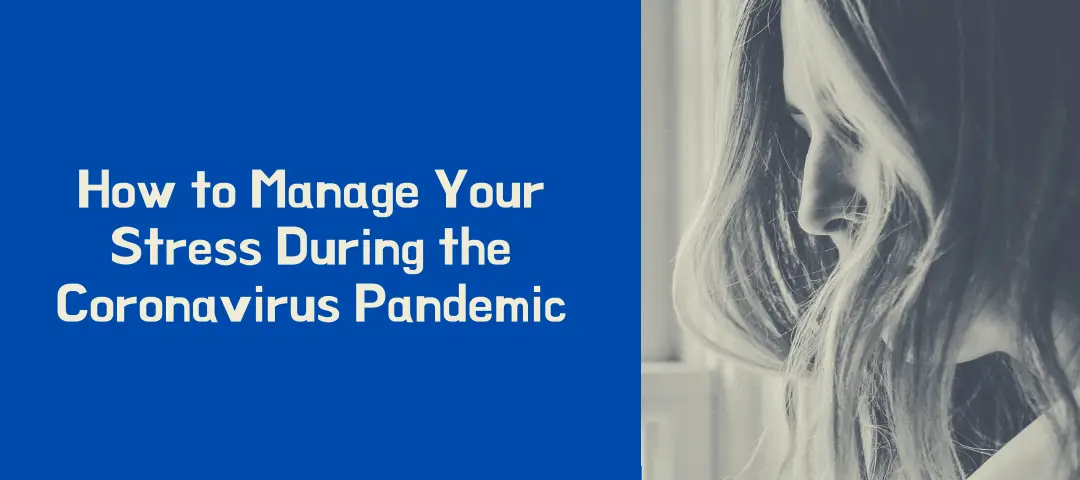Written by Dan Vale
It seems appropriate that National Stress Awareness Month is in April, which probably will be the most stressful month for us during this pandemic. This article will give you ideas about how to productively manage your stress.
It’s normal to feel stressed
It is easy to understand why this is a stressful time in our lives. We fear getting sick, and we may have fears about our careers and our financial stability. Also, having to stay at home is causing “cabin fever” for many. In some cases, stress can cause domestic violence and even suicide.
The purpose of stress management is not to eliminate all stress from our lives. Some stress is needed to motivate and energize productive behavior, especially during a disaster. Too much stress, however, can lead to panic and rash decisions. Eventually, too much stress also can lead to burnout.
What not to do
First, let us talk about more risky ways to manage stress. Examples of ways that may have long term negative consequences include trying to cope by depending too much on alcohol, drugs, cigarettes, excessive marathon TV watching, or junk food.
Try these instead
- Get some exercise
- Eat nutritious food
- Get enough sleep
- Develop an optimistic, “can do” attitude
- Pray
- Interact with others lovingly through phones, FaceTime, etc.
- Stay informed about, but not obsessed with the current crisis
- Accomplish projects by breaking them into many smaller projects
Stress management is a valuable skill to have not only during disasters, but also during normal times as well.
Set goals and manage your time
A lot of people may feel unproductive while sheltering in place. Set aside time to do some goal setting and establishing priorities. Time management will help you allocate time to get some work accomplished along with personal activities.
Avoid procrastination
Decide on projects your want to accomplish around the house. List them them in their order of importance. An important goal with a quick deadline, for example, should probably be accomplished before a less important goal with a more distant deadline.
Get organized
Getting organized will help you eliminated the stress that comes from not being able to find items when you need them. Start by organizing just one drawer that has gotten out of hand. Then move on to the next drawer or closet.
Manage conflict before it escalates
Being cooped up for long periods of time can cause conflicts between household members to flare up. Take the time to talk things through and find a win-win compromise. One important aspect of managing conflict well includes effectively using anger management.
Brainstorm ways to resolve issues where the group can contribute suggestions with no criticism from other group members of their ideas. From that collection of suggestions, the group later decides upon the suggestions that most likely will solve their problem.
Develop a sense of humor
Developing a sense of humor helps to dissipate tension. Watching comedy shows, for example, allows a temporary escape from unpleasant problems. Many problems are solved when we stop consciously obsessing about them and give our unconscious mind time to consider the problems.
Spend time on a hobby
Lessen tension by spending time on your favorite hobbies. If you don’t have one, find something that interests you. Exercise or playing a musical instrument are two examples of useful hobbies.
Find some positivity
In spite of all the bad things going on, a disaster such as the coronavirus also can have some positive effects. Families, for example, will spend more time together, Some people will get to know their neighbors better. Some also will develop stronger stress management skills that will be helpful to them in normal times.
One important positive effect of the coronavirus can be the motivation it gives us to be well prepared for future disasters. As Roger Crawford said, “Being challenged in life is inevitable, being defeated is optional.”
About the Author:
Dan Vale has a Bachelor Degree in Physical Education. He won the Mr. Delaware Bodybuilding Contest in 1968 and earned his karate Black Belt in 1973. He has had a lifelong interest in physical fitness. Furthermore, for over seven years, he wrote 785 of articles for the Examiner Online Newspaper. Most of these articles were written in his capacity as the Baltimore Prepper Examiner. To see his Amazon books, visit his Amazon author page.
*****************************************************************
We are an affiliate of Amazon.com, which means we received a small commission if you click through one of our Amazon links when you shop, at totally no cost to you. This helps keep the lights on at the blog. Thanks!
Photo by Danielle MacInnes on Unsplash


